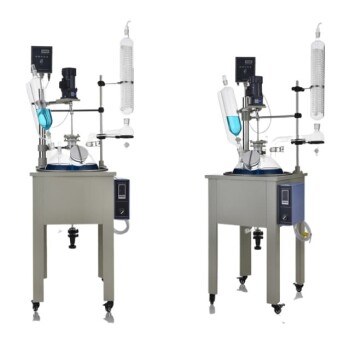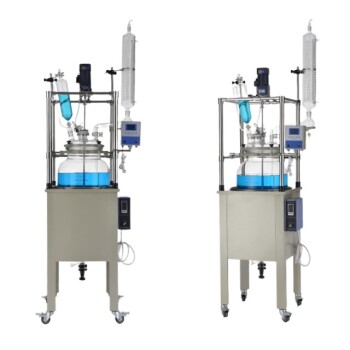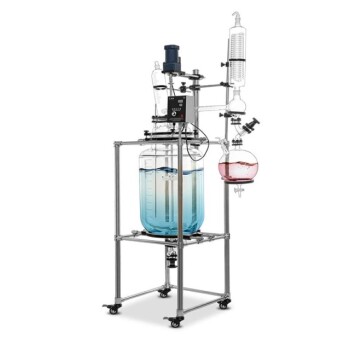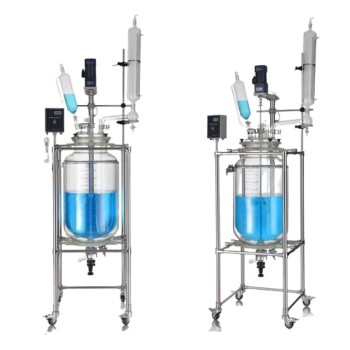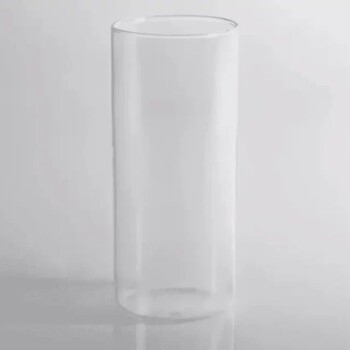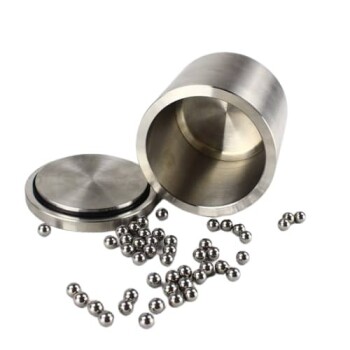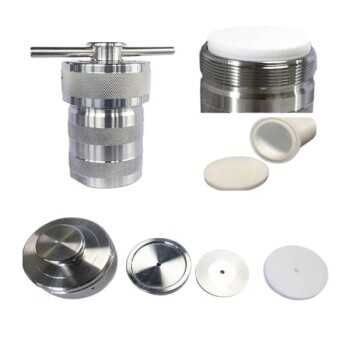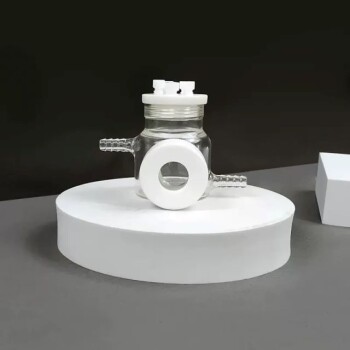A glass reactor is a versatile piece of equipment used in chemical processes, primarily constructed from materials that ensure durability, thermal resistance, and chemical compatibility. The primary material used in glass reactors is borosilicate glass, known for its high resistance to thermal shock and chemical corrosion. Other materials, such as PTFE (Polytetrafluoroethylene) for sealing and stainless steel (SUS304) for structural support, are also integral to the reactor's construction. These materials work together to provide a robust and reliable system for handling chemical reactions under various conditions, including high pressure and temperature.
Key Points Explained:
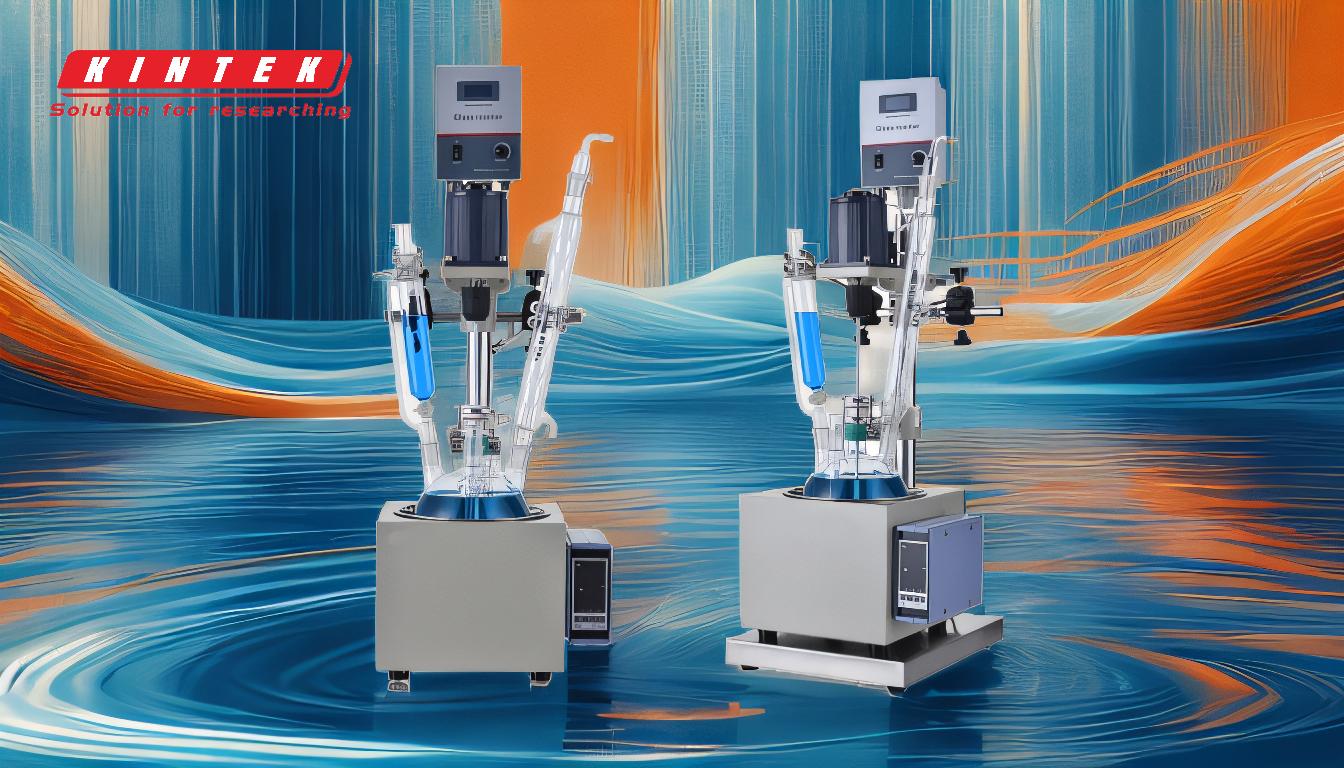
-
Borosilicate Glass as the Primary Material
- Borosilicate glass is the most common material used for the reactor vessel due to its exceptional properties:
- Thermal Shock Resistance: It can withstand rapid temperature changes without cracking, making it ideal for processes involving heating and cooling.
- Chemical Resistance: It is highly resistant to most acids, bases, and solvents, ensuring compatibility with a wide range of chemical reactions.
- Transparency: The transparency of glass allows for easy visual monitoring of reactions.
- Borosilicate glass is used for the main reactor body, including the cylindrical vessel and the lid with ports for accessories.
- Borosilicate glass is the most common material used for the reactor vessel due to its exceptional properties:
-
PTFE (Polytetrafluoroethylene) for Sealing and Insulation
- PTFE is used in critical areas such as seals and gaskets due to its unique properties:
- Chemical Inertness: PTFE is resistant to almost all chemicals, making it ideal for sealing applications in reactive environments.
- Non-Stick Properties: It prevents the buildup of residues, ensuring smooth operation and easy cleaning.
- Temperature Resistance: PTFE can withstand a wide range of temperatures, enhancing the reactor's versatility.
- PTFE is used in critical areas such as seals and gaskets due to its unique properties:
-
Stainless Steel (SUS304) for Structural Support
- Stainless steel is used for the reactor frame and other structural components because of its:
- Strength and Durability: It provides a sturdy framework to support the glass vessel and other components.
- Corrosion Resistance: SUS304 stainless steel is resistant to rust and corrosion, ensuring long-term reliability.
- Hygienic Properties: It is easy to clean and maintain, which is essential for laboratory and industrial applications.
- Stainless steel is used for the reactor frame and other structural components because of its:
-
Functional Components and Their Materials
- Agitator: Typically made of stainless steel or coated with PTFE, the agitator ensures efficient mixing of reactants.
- Baffles: Often constructed from borosilicate glass or stainless steel, baffles promote turbulence and improve mixing efficiency.
- Jacket: The jacket, used for temperature regulation, is usually made of borosilicate glass or stainless steel, depending on the application.
- Ports and Valves: These are made from materials like PTFE or stainless steel to ensure leak-proof connections and chemical compatibility.
-
High-Pressure and Corrosion-Resistant Construction
- For high-pressure glass reactors, the materials are chosen to withstand extreme conditions:
- Borosilicate glass is reinforced to handle high internal pressures.
- PTFE and stainless steel components are used to ensure a tight seal and structural integrity under pressure.
- For high-pressure glass reactors, the materials are chosen to withstand extreme conditions:
-
Additional Materials for Enhanced Performance
- Some reactors may incorporate additional materials for specific applications:
- Insulation Materials: To improve thermal efficiency and safety.
- Specialized Coatings: To enhance chemical resistance or reduce friction in moving parts.
- Some reactors may incorporate additional materials for specific applications:
By combining these materials, a glass reactor achieves a balance of strength, durability, and functionality, making it suitable for a wide range of chemical processes in laboratories and industrial settings.
Summary Table:
| Component | Material | Key Properties |
|---|---|---|
| Reactor Vessel | Borosilicate Glass | Thermal shock resistance, chemical resistance, transparency |
| Seals/Gaskets | PTFE | Chemical inertness, non-stick properties, temperature resistance |
| Structural Support | Stainless Steel (SUS304) | Strength, corrosion resistance, hygienic properties |
| Agitator | Stainless Steel/PTFE | Efficient mixing, chemical compatibility |
| Baffles | Borosilicate Glass/SS | Improved mixing efficiency |
| Jacket | Borosilicate Glass/SS | Temperature regulation |
| Ports/Valves | PTFE/Stainless Steel | Leak-proof connections, chemical compatibility |
Interested in learning more about glass reactors? Contact us today for expert advice and solutions tailored to your needs!


